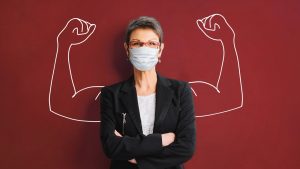 If you’ve got surgery coming up, you might want to consider “prehabilitation.” Doing so could help slow muscle loss and diminish the effects of bed rest.
If you’ve got surgery coming up, you might want to consider “prehabilitation.” Doing so could help slow muscle loss and diminish the effects of bed rest.
The COVID-19 pandemic has stretched capacity at hospitals across the country, prompting the cancellation or rescheduling of surgeries. For some, this could be a blessing in disguise.
Advertisement
A new study has found that taking time to get physically fit before surgery—called prehabilitation—can limit the amount of muscle loss during recovery.
If your surgery has been delayed, consider lifting weights to increase muscle mass so you can get back on your feet as quickly as possible without the long-term implications of muscle loss. These include sarcopenia, osteoporosis, a higher risk for falls, and mobility impediments.
British researchers asked a group of older adults to lift weights four times over the week, exercising one leg but not the other. Next, they rested in bed for five days to mimic post-surgery protocols for older individuals.
They found that each leg lost muscle during bed rest. In fact, five days of bed rest led to losses of 3 to 4 percent, which older adults would typically lose over 3 to 5 years.
Of course, the more muscle you have to lose, the less pronounced it will be. Working out prior to surgery allows for some wiggle room, so muscle loss is less severe.
Advertisement
Lost muscle can be very hard to recover if you’re not performing resistance exercise on a regular basis. To limit muscle loss that could result from an upcoming surgery, start prehabilitating now.
A structured prehabilitation program would include aerobic and resistance training (weight lifting), a protein-rich diet, and good quality sleep.
If your surgery has been delayed because of COVID, try and use your time wisely by getting your body ready for what it is set to endure. Strong muscles may lead to a much happier recovery and improve long-term health.
